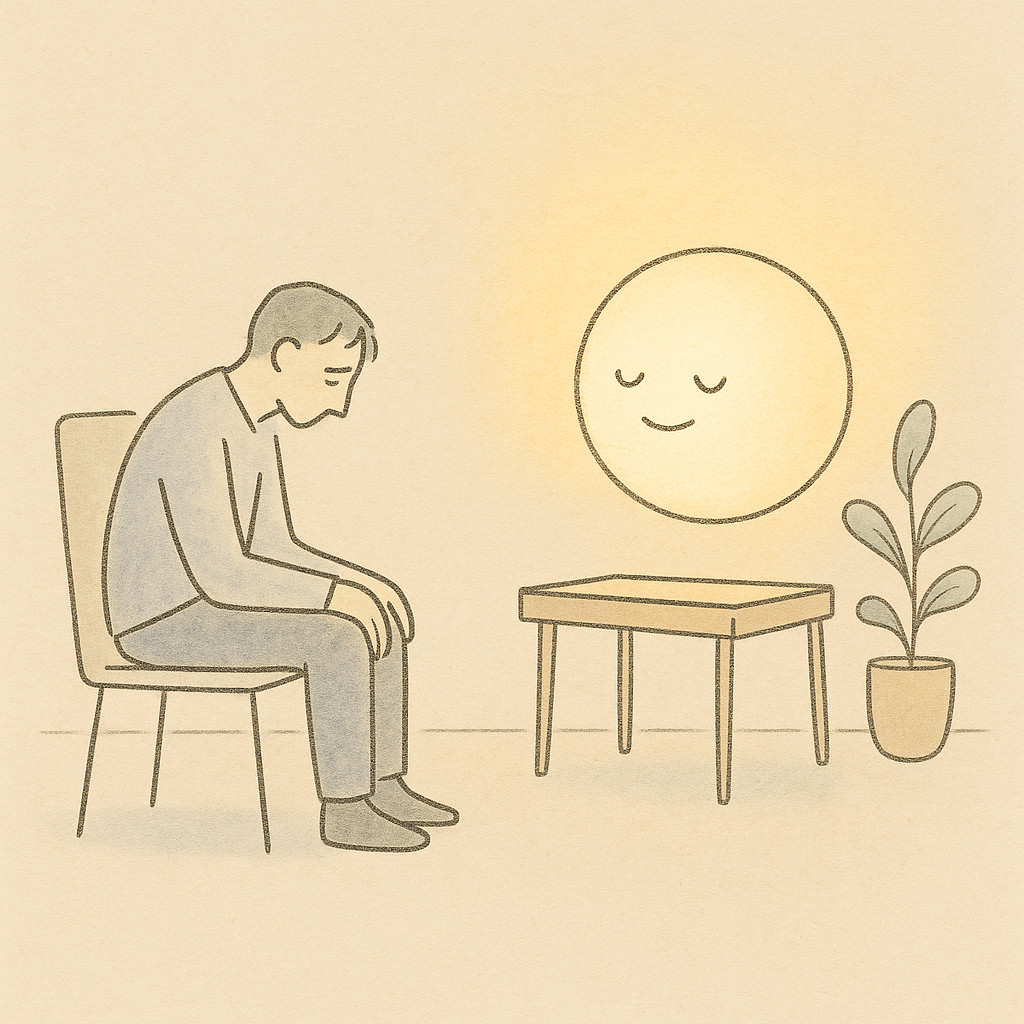The $5 Therapist: Is AI Finally Solving Therapy’s $300 Problem?
Why 20-somethings now trust ChatGPT with their love lives—and what the rest of us should learn from them.
1. A $400-an-Hour Pain Point
Walk into any city practice and you’ll see the same equation: specialist relationship or attachment therapists now charge roughly £200 – £320 / $250 – $400 per 50-minute session—and that’s before intake paperwork or assessments. For instance, Modern Intimacy lists $200 – $450 per couples session, while LA-based Align Therapy Group posts $250 for individual work and $375 for couples.
Multiply that by weekly appointments over a typical year-long treatment arc (40-50 sessions is common for deeper attachment work) and the annual bill sails past $12 000. Many providers acknowledge that “some couples might continue therapy for a year or more when issues are complex.” respark.co

Why Millions Already Prefer the $5 Bot
Judgment-Free, 24/7
At 2 a.m., ChatGPT never sighs, glances at the clock, or bills overtime. Couples are literally copy-pasting WhatsApp fights into GPT for real-time “refereeing.” One New York pair told the NY Post the bot “saved our relationship” by reframing blame-laden language into needs statements nypost.com.
Surprising Empathy (on Paper)
In a controlled study summarised by Forbes, blinded raters scored ChatGPT’s replies to distressed users more empathic than licensed clinicians’ responses in Reddit-style vignettes forbes.com. The bot’s secret weapon is unlimited context windows: it never forgets what you told it 60 messages ago.
Pattern Recognition at Scale
Upload months of voice notes or text chains and GPT will spit out a heat-map of “I-statements,” apology ratios, or passive-aggressive emojis—tasks a human assistant would charge hours to complete.
Democratised Access
OpenAI CEO Sam Altman jokes that students use ChatGPT “like a life advisor” because it’s the only coach they can afford on a Tuesday night fortune.com. For populations priced out of therapy or languishing on NHS wait-lists, AI feels like a lifeline, not a gimmick.

The Therapist Backlash, and Why It’s Half Right
Clinical twitter exploded after the Forbes headline. Psychologists warn that algorithmic warmth ≠ real empathy. And they have receipts.
The Empathy Gap in Crisis
A Guardian investigation found that AI therapy bots missed or mishandled self-harm cues in up to 40 % of test prompts, sometimes offering calorie-counting tips to users with eating-disorder language theguardian.com. Stanford researchers recently showed chatbots “validated delusional beliefs” and failed to flag suicidal ideation in mock sessions sfgate.com.
Cognitive Off-Ramping
The viral MIT study that sounds like a Black Mirror episode: students who wrote essays with ChatGPT showed lower brain-activation in memory and creativity regions than peers who Googled or free-wrote nypost.com. Over-reliance could breed what neuroscientists call metacognitive laziness.
3.3 Addiction & Artificial Intimacy
When Replika rolled back erotic role-play, thousands of users mourned “digital break-ups” and reported withdrawal-like loneliness washingtonpost.com. If a software patch can shatter your heart, the relationship probably wasn’t resilience-building.

Is the $5 Therapist Dangerous or Disruptive?
Here’s the paradox: AI is often better than a rushed clinician at surface-level empathy, yet worse at spotting red-flag nuance. The cheapness doesn’t automatically make it safe, but cost alone doesn’t make human therapy effective either. Up to 50 % of clients quit therapy early, usually citing “no progress” or “couldn’t afford to continue”3.
The Hybrid Model: Cheap Brains, Premium Heart
Think of AI as the MRI scanner of emotional life—it shows patterns a naked eye can’t. But you still need a surgeon for the operation. Enter a new wave of high-ticket coaching programmes that:
- Use GPT to surface habits within minutes—daily mood logs, language sentiment, intimacy scores.
- Deploy human expertise for transformation—goal setting, accountability, somatic regulation, trauma-informed boundaries.
- Compress the timeline. Instead of 12 weeks of 50-minute analysis, clients sprint through a focused 6-week protocol with asynchronous AI check-ins.
For clients, that means paying once for a premium cohort (yes, four figures) rather than an open-ended $200-per-week loop. For professionals, it means reserving scarce human time for the 20 % of work that drives 80 % of breakthroughs.
A 40-Year-Old Therapist's Playbook for the AI Era
As someone straddling Gen Z’s digital fluency and Gen X’s scepticism, here’s my rule of thumb:
| Situation | Reach for AI first? | Bring in a human? |
|---|---|---|
| Routine reflection (journals, argument rewrites) | ✅ Yes – pattern-spotting & drafts | – |
| Acute conflict (“Should we break up?”) | ✅ Quick clarity check | ✅ Book coaching / therapy |
| Trauma or Suicidality | – | 🚨 Human professional only |
| Skill-building (secure attachment, communication drills) | ✅ AI for micro-homework | ✅ Coach for live feedback |
Conclusion: The Best Help Is the Help You’ll Use
AI is the $5 therapist—remarkably smart for chump change. Therapy is the $300therapist—priceless when it works, but unaffordable for many and unavailable at 2 a.m. Coaching is the bridge—human insight fast-tracked by AI tools. The question isn’t “Which one is better?” but “Which blend keeps you moving?”
If you’re curious how a tailored mix could look for your relationship:
➡️ Book a clarity assessment call (60minutes, one-on-one, with a humanbeing aka myself!)
Footnotes
- Healthline. “How Much Does Therapy Cost?” Jan 2024. healthline.com ↩
- Fortune. “Gen Z Uses ChatGPT Like a Life Adviser,” 13 May 2025. fortune.com ↩
- Wired. “The Problem With Mental-Health Bots,” 2022 (cites 50 % dropout). wired.com ↩